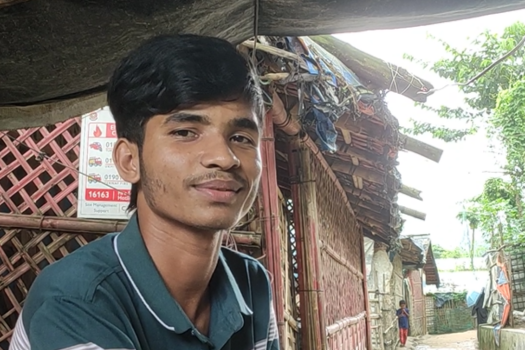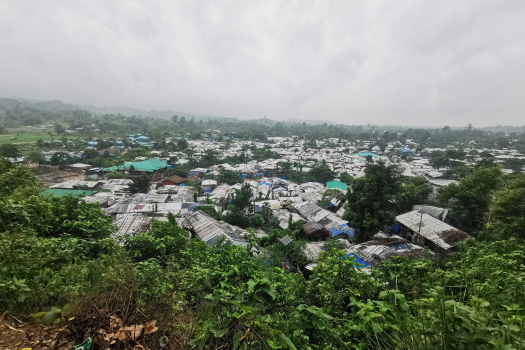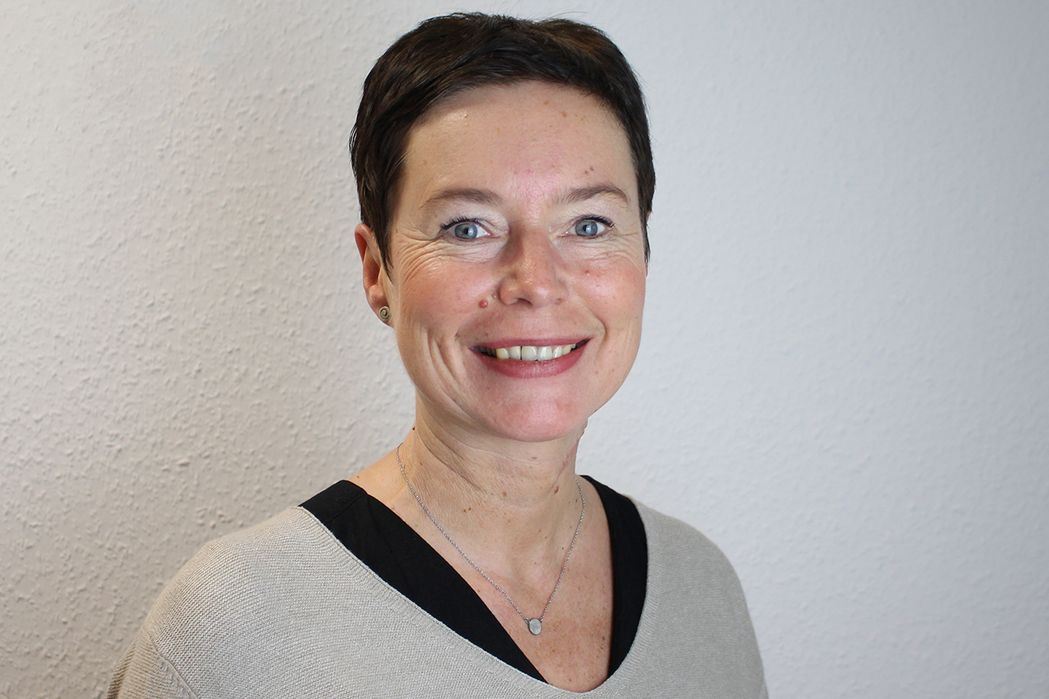Cologne/Cox's Bazar/Kakuma. The latest global cuts in international humanitarian aid budgets, including those by the German government, which has reduced its support by more than half, is having devastating consequences. While the number of people in need of assistance continues to climb, now reaching around 300 million, funding is shrinking. The health sector is particularly affected by the cuts. “These cuts could cost millions of lives worldwide,” says Kees Zevenbergen, program director at Malteser International, citing the example of health care in two of the world's largest refugee camps: Cox's Bazar in Bangladesh and Kakuma in Kenya. A total of 1.3 million people who have fled conflict and persecution are now losing access to medical care.
In Cox's Bazar, home to around 1 million Rohingya refugees living in extremely difficult conditions, several clinics have already been forced to close. Budgets for health facilities have been cut by more than 80 percent. Mohammed Ayas, 20, from Myanmar, lives in one of the camps as a refugee: "The population here is growing quickly, but health facilities are shutting down. Overcrowding is causing diseases to spread in the camp that need to be treated regularly with medication. Pregnant women especially need good care. We depend entirely on the services inside the camp, because we’re not allowed to leave and we have no income.”
The cuts are also immense in the Kakuma camp in Kenya, where almost 300,000 refugees from South Sudan, Somalia, and other crisis regions live. Ngipuo Lomogo, a 39-year-old HIV patient, describes her current situation: “The reduced food rations have made me weaker and I have lost weight. The little food we get has led to tensions with neighbors and relatives. The worsening economy and lack of jobs have left the community more vulnerable to crime. I now live in constant fear of theft and violence.”
Due to funding cuts, around half of the staff at health facilities in Kakuma have been laid off. Medicines are also becoming scarce in health facilities.
Zevenbergen sums up: "The cuts come at a time when more and more people are being forced to flee. 120 million people are currently living as refugees under extremely difficult conditions. Humanitarian organizations like ours will continue to provide relief for as long as possible. But if humanity fails, millions of lives will be in danger. Cutting back support at this moment is cruel."
Malteser International is currently supporting three health facilities in the refugee camps in Bangladesh. In Kakuma, the organization is providing food, cash assistance, and seeds, while also supporting 16 health facilities.
Attention editors:
Kees Zevenbergen, Program Director at Malteser International, is available for interviews and sound bites.
Contact: +49 (0)221 9822-7181, katharina.Kiecol@malteser-international.org
Malteser International: “Millions of lives are at risk”
People in refugee camps in Bangladesh are particularly hard hit by global cutbacks. Mohammed Ayas reports on how his life is currently changing. Photo: Malteser International











